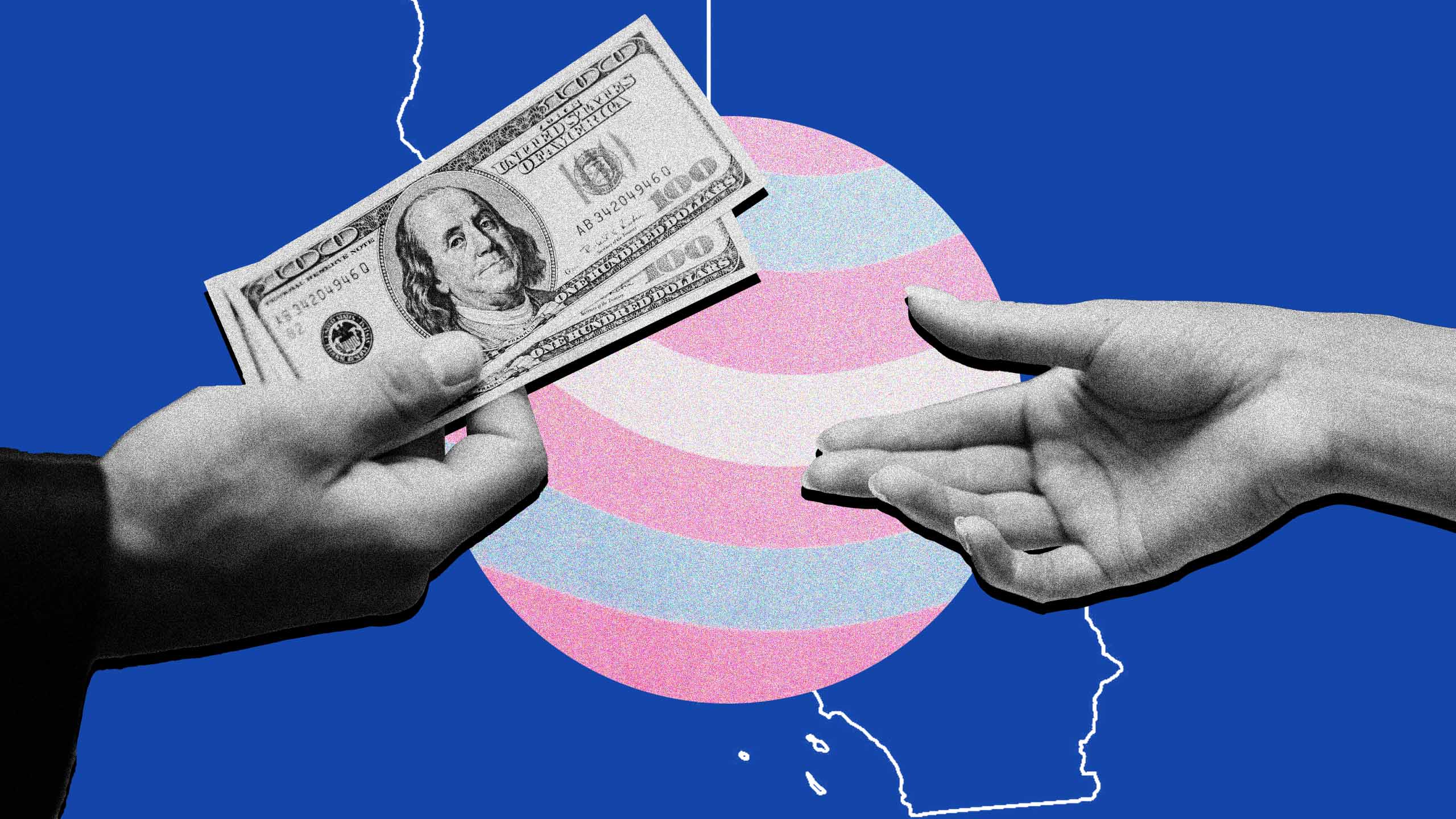The city of San Francisco is launching a new program that will provide low-income trans residents with unconditional cash support, to help address widespread financial inequities.
On Wednesday, Mayor London Breed announced the launch of a guaranteed income pilot program for members of the trans community. The program, called Guaranteed Income for Trans People (GIFT), will give USD $1,200 a month to 55 eligible trans residents for 18 months. It will also help provide access to gender-affirming medical care, mental healthcare and financial coaching. The city of San Francisco has allotted two million dollars to the program, according to Axios.
The program will prioritize applicants who are Black, Indigenous or facing other barriers to financial security. To apply, residents must also be over 18, live in San Francisco and earn less than USD $600 a month (however, once enrolled, the maximum income to continue receiving payments is $4,000 a month). Aside from completing a survey every three months, there are no conditions to receiving payment. The application is currently live, and will remain open until December 15.
“We know that our trans communities experience much higher rates of poverty and discrimination, so this program will target support to lift individuals in this community up,” Breed told Axios. In 2015, the U.S. Transgender survey found that 33 percent of trans Californians were living in poverty, which is above the nationwide average. San Francisco has one of the highest costs of living of major cities in the U.S., with a median rent of nearly USD $3,000.
This city’s program comes after grassroots efforts to support trans people with direct payments in the area, many of which tried to address the added financial pressures of the COVID-19 pandemic. Last year, El/La Para TransLatinas, a non-profit supporting trans Latinx people, gave out monthly Visa gift cards to San Francisco residents, according to the San Francisco Examiner. Around the same time, San Francisco’s Transgender District—the first legally recognized cultural district celebrating trans community in the U.S.—which is working with Lyon-Martin Community Health Service to implement the GIFT Program, ran a similar initiative, sending cash payments to 600 trans folks across the U.S..
The pilot project is also in line with San Francisco’s wider interest in guaranteed-income trials. In the last two years, the city launched similar pilot programs for pregnant people who are Black or Pacific Islander, and for artists. There are currently plans to launch two other pilots targeting youth, according to KTLA News.
The organizations helping support the GIFT program have expressed their excitement about what it could mean for San Francisco’s trans community. “I’m thrilled that the City is partnering with two amazing community-based and trans-led organizations to implement this much-needed program,” said Pau Crego, the executive director of San Francisco’s Office of Transgender Initiatives in a statement to Xtra.
“My hope is that this is only the beginning, and that once we document the positive outcomes of supporting those most impacted by poverty, we can expand on this and other strategies to improve economic and health outcomes for trans San Franciscans.”
JM Jaffe, the executive director of Lyon-Martin Community Health Service, told KTLA News that economic insecurity is a “life-or-death situation” for trans people, which is part of what the program hopes to address. “While healthcare often focuses on the downstream effects of marginalization, we know that changing the material realities of trans communities can significantly impact their health for the better,”said.
Trans people across the U.S. are much more likely to deal with the financial precarity and its effects than their cisgender counterparts. According to the 2015 U.S. Transgender Survey, 29 percent of trans Americans were living in poverty—over two and a half times the poverty rates of the general U.S. population at the time. High levels of unemployment among trans Americans are likely a major contributor to that statistic, according to the study.
While San Francisco is the first city to officially launch a program that addresses this disparity with a guaranteed income, other cities are contemplating similar moves. The city of Palm Springs has a trans-specific basic income pilot program in development, according to the Los Angeles Times. Other cities, like Des Moines and Denver, are implementing broader basic income trials, though not focused on trans residents.
In some cases, the massive benefits of basic guaranteed income are already becoming clear. Recent analysis of a 2019 trial in Stockton, California, found that the unrestricted payments increased participants’ employment prospects, reduced levels of anxiety and depression, and created financial stability. Organizers hope that this pilot can pave the way for similar programs across the country. “Since this is the first guaranteed income pilot program in the country that focuses on trans, non-binary, gender nonconforming and intersex communities, the Transgender District will be leading the development of a toolkit with lessons learned about this program,” said Crego. “Hopefully it can be replicated in other cities and states.”


 Why you can trust Xtra
Why you can trust Xtra


